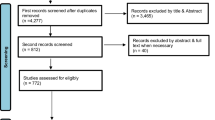Abstract
The body of literature connecting science education and citizenship is growing, through the lens, for example, of science, technology, society and environment (STSE) education. The case study highlighted here explores ways in which students in a seventh-grade science class used studies of waste management to engage in active citizenship. In our analyses of their action projects, we suggest that students formed new connections between science education and citizenship. Through personal changes they appeared to undergo, it seemed that they gained recognition of the impact that an individual can have on the well-being of self, society, and environment. Factors influencing their personal changes, including changes in their science literacy and self-efficacy beliefs, indicate directions for possible expansion studies of interactions between science and citizenship education.
Résumé
La littérature associant l’enseignement des sciences et la notion de citoyenneté responsable est en expansion, par le biais de l’enseignement des science, technologies, société et environnement (STSE). Cet article analyse les façons dont un cours de sciences de niveau intermédiaire s’est servi d’études sur la gestion des déchets pour stimuler la participation active à la notion de citoyennet é responsable. Une analyse des résultats des «projets d’action» des étudiants—c’est-à-dire des changements personnels qui sont survenus chez ces derniers—a montré qu’ils avaient établissaient de nouveaux liens entre l’enseignement des sciences et la citoyenneté responsable. Grâce à ces changements personnels, ils ont appris à reconnaître l’impact que l’individu peut avoir sur le bien-être individuel, collectif et environnemental. Les facteurs qui influencent les changements indiquent la nécessité d’élargir le champs de la recherche sur les interactions pédagogiques entre l’enseignement des sciences et la notion de citoyenneté responsable.
Similar content being viewed by others
References
Ashley, M. (1998). Economics, environment and the loss of innocence. In C. Holden, & N. Clough, (Eds.), Children as citizens: Education for participation (pp. 171–182). London: Jessica Kingsley Publishers.
Bandura, A. (1997). Self-efficacy: The exercise of control. New York: W. H. Freeman.
Bencze, J. L., & Alsop, S. (2009). A critical and creative inquiry into school science inquiry. In W.-M. Roth & K. Tobin, (Eds.), The world of science education: North America (pp. 27–47). Rotterdam, The Netherlands: Sense.
Cargo, M., Grams, G. D., Ottoson, J. M., Ward, P., & Green, L. (2003). Empowerment as fostering positive youth development and citizenship. American Journal of Health Behavior, 27(Suppl. 1) S66–S79.
Carr, W. (1998). The curriculum in and for a democratic society. Curriculum Studies, 6(3), 323–340.
Charmaz, K. (2000). Grounded theory: Objectivist and constructivist methods. In N. K. Denzin, & Y. S. Lincoln, (Eds.), Handbook of qualitative research (pp. 509–535). Thousand Oaks, CA: Sage.
Davies, I. (2004). Science and citizenship education. International Journal of Science Education, 26(14), 1751–1763.
Guba, E. G., & Lincoln, Y. S. (1988). Naturalistic and rationalistic enquiry. In J. P. Keeves, (Ed.), Educational research, methodology and measurement: An international handbook (pp. 81–85). London: Pergamon.
Hammersley, J., & Atkinson, P. (1990). Ethnography: Principles in practice. London: Routledge.
Hodson, D. (1994). Seeking directions for change: The personalisation and politicisation of science education. Curriculum Studies, 2, 71–98.
Hodson, D. (2003). Time for action: Science education for an alternative future. International Journal of Science Education, 25(6), 645–670.
Hodson, D. (2008). Towards scientific literacy: A teachers’ guide to the history, philosophy and sociology of science. Rotterdam, The Netherlands: Sense.
Holden, C., & Clough, N. (1998). The child carried on the back does not know the length of the road. In C. Holden, & N. Clough, (Eds.), Children as citizens: Education for participation. (pp. 13–29). London: Jessica Kingsley Publishers.
Lincoln, Y. S., & Guba, E. G. (2000). Paradigmatic controversies, contradictions, and emerging confluences. In N. K. Denzin, & Y. S. Lincoln, (Eds.), Handbook of qualitative research (pp. 163–188). Thousand Oaks, CA: Sage.
Ministry of Education. (2007). Ontario curriculum, Grades 1–8: Science and Technology. Toronto: Queen’s Printer for Ontario.
Ratcliffe, M., & Grace, M. (2003). Science education for citizenship: Teaching socio-scientific issues. Philadelphia: Open University Press.
Roth, W.-M., & Désautels, J. (2004). Educating for citizenship: Reappraising the role of science education. Canadian Journal of Science, Mathematics and Technology Education, 4, 149–168.
Sadler, T. D., Barab, S. A., & Scott, B. (2007). What do students gain by engaging in socioscientific inquiry? Research in Science Education, 37(4), 371–391.
Simms, A. (2009). Ecological debt (2nd ed.). London: Pluto Books.
United Nations. (1989). Convention on the Rights of the Child. Retreived May 15, 2010, from http://www.unicef.org/magic/briefing/uncorc.html
Wenger, E. (1998). Communities of practice. Cambridge: Cambridge University Press.
Westheimer, J., & Kahne, J. (2004). What kind of citizen? The politics of educating for democracy. American Educational Research Journal, 41(2), 237–269.
Author information
Authors and Affiliations
Corresponding author
Rights and permissions
About this article
Cite this article
Sperling, E., Bencze, J.L. “More Than Particle Theory”: Citizenship Through School Science. Can J Sci Math Techn 10, 255–266 (2010). https://doi.org/10.1080/14926156.2010.504487
Published:
Issue Date:
DOI: https://doi.org/10.1080/14926156.2010.504487




